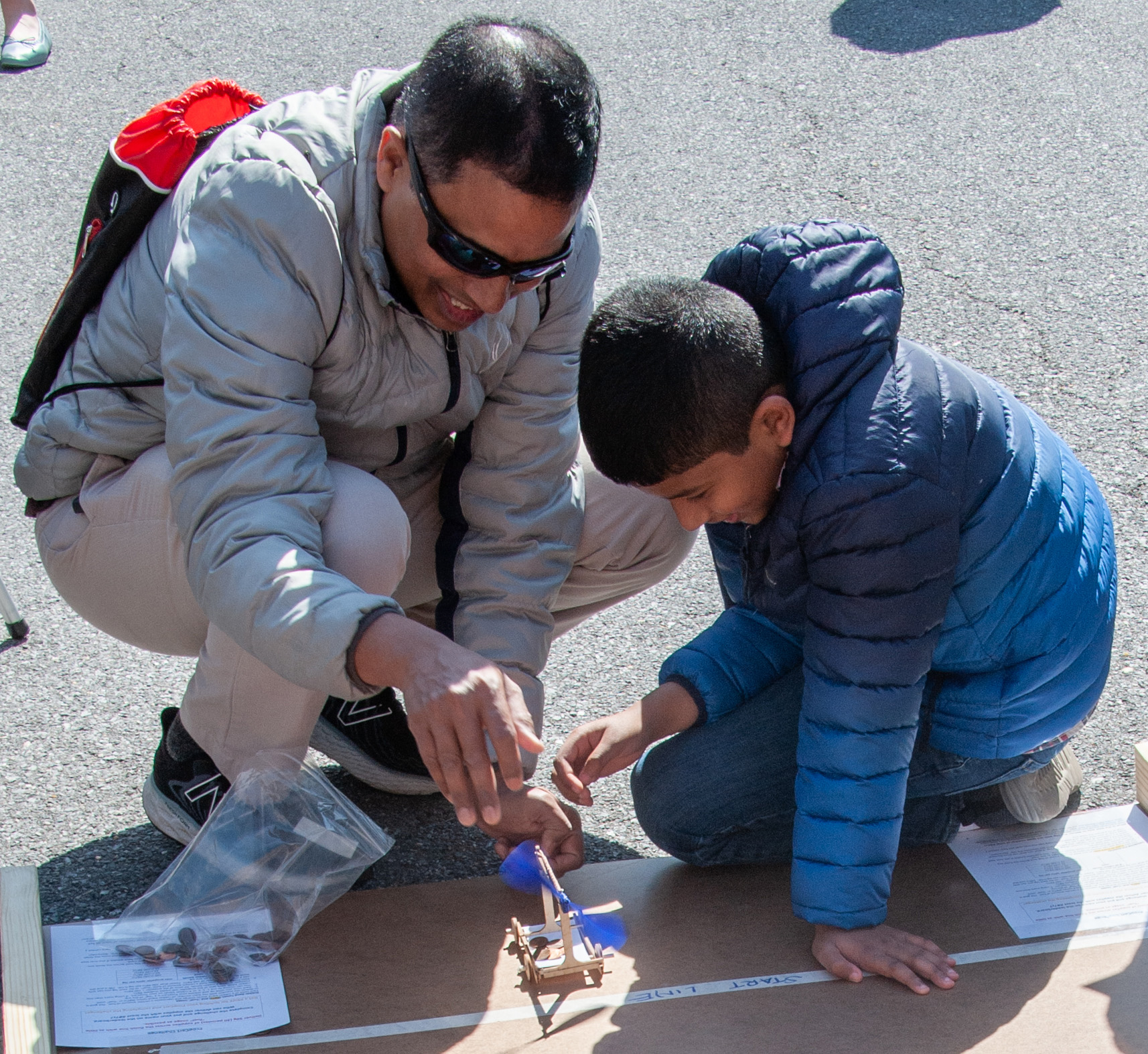Engineering Outreach Through Next-Generation GOAL Kits
It began as an idea for ensuring that middle school students—especially from underprivileged backgrounds—would have access to hands-on STEM learning opportunities while at home during the COVID-19 pandemic. Now the popular Get Out And Learn (GOAL) Engineering Kits program, spearheaded by Maryland’s Women in Engineering (WIE) in collaboration Engineering faculty, is entering its third year, having debuted a new set of kits at Maryland Day on April 30, 2022. “Originally, the intent was to find a way to continue STEM outreach activities during the pandemic,” said mechanical engineering senior lecturer Vincent Nguyen, who pioneered the idea together with counterparts at WIE. “There was a real concern that an entire age group would miss out on formative STEM experiences because of the disruption, and the consequences would be especially serious for underrepresented students.” Viviana, Sofia, and Ian Ortiz each assembled and tested their own GOALkit during Maryland Day in April 2022 The idea turned out to have benefits that transcended the pandemic. “We saw that the GOALKits program has distinct advantages compared to some more traditional forms of outreach,” Nguyen said. “The reach is much broader. We were able to engage many more students than was the case before.” For the third iteration, students at Montgomery and Prince George’s County school systems, as well as at a number of Washington, DC schools, will receive a revamped kit that features several improvements over the original. Instead of a miniature car, students will build a cart that uses a rubber-band-propeller for forward motion, enabling it to carry a cargo of pennies. “The challenge is to get 50 pennies across a certain distance with the fewest rubber band twists,” explains mechanical engineering professor Elisabeth Smela, who—together with Nguyen and Professor David Bigio—co-led a UMD undergraduate capstone design course, Entrepreneuriai Design Realization (EDR), that developed the new kit design as well as a design for manufacturing. There’s far more involved than simple assembly of a kit, Nguyen and Smela point out. As they strive to meet the challenge, middle-schoolers must consider the relationship among the variables involved, including weight, number of twists, and distance. “The project has all the STEM elements—the science of friction and physical forces, the technology of assembling the kit, the engineering involved in optimizing it further, and the math involved in analysis,” Smela said. “They can also decorate their carts to involve the arts, so STEM becomes STEAM.” More than 3,000 kits are being sent out to area students for use in summer bridge programs, and a culminating challenge event is to be held later in the year on the UMD campus. The involvement of UMD students in the revamp brings additional value to the program, Nguyen said, with students in two different courses providing input. First, students in a College Park Scholars service learning course met with elementary, middle school, and high school teachers to learn from them how the kits and curriculum could be improved. The recommendations they gathered were then picked up by students in the EDR course, which aims to connect the dots between the technical skills learned by engineers and broader objectives, such as business and consideration of environmental and social impact. The course is part of the Environmentally and Socially Responsible Engineering curricular initiative being developed at Maryland Engineering by Smela and her colleagues. For Nguyen, who first proposed the kit idea, the endeavor was based on personal experience: growing up in the D.C. region, he has seen firsthand the difference that early exposure to STEM education can make. “I have friends who went on to college and have advanced degrees and friends who didn’t, and the only difference I see is the difference in access to opportunities and information that they had,” he said.
Related Articles: June 10, 2022 Prev Next |



